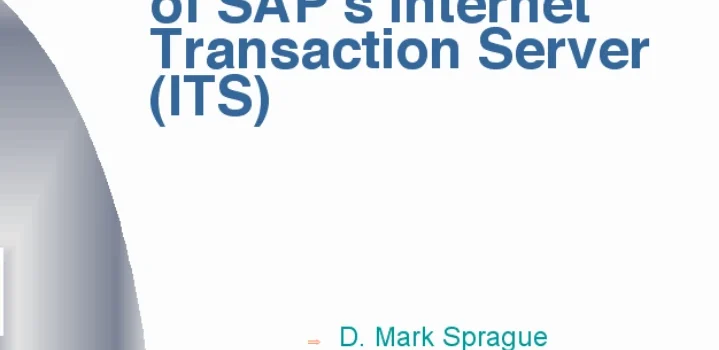
Table of Contents
ToggleIntroduction Internet Transaction Server
An Internet Transaction Server (ITS) is a crucial software platform designed to facilitate and manage online transactions securely and efficiently. It enables businesses to process payments through various methods, such as credit and debit cards, digital wallets, and bank transfers. With built-in security features like encryption and user authentication, an ITS protects sensitive data during transmission, ensuring compliance with industry standards. Additionally, it offers scalability to handle fluctuating transaction volumes, integrates seamlessly with other business systems, and provides valuable reporting and analytics tools. In the rapidly evolving digital economy, an Internet Transaction Server is essential for businesses aiming to deliver a smooth, secure, and reliable online shopping experience for their customers.
key features of an Internet transaction Sarvar
Here are the key features of an Internet Transaction Server (ITS):
- Payment Processing: Supports various payment methods, including credit/debit cards, digital wallets, and bank transfers, enabling smooth transactions.
- Security Measures: Implements encryption protocols (like SSL/TLS) and secure authentication methods to protect sensitive data and ensure transaction integrity.
- Scalability: Capable of handling varying transaction volumes, allowing businesses to scale operations efficiently during peak periods.
- User Authentication: Provides robust mechanisms for verifying user identities, reducing the risk of fraud and unauthorized access.
- Transaction Management: Tracks and manages the status of transactions in real-time, offering updates to both users and merchants.
- Integration Capabilities: Easily integrates with other business systems such as CRM, ERP, and inventory management, creating a cohesive operational flow.
- Compliance Support: Helps businesses adhere to industry regulations (e.g., PCI-DSS) related to payment processing and data protection.
- Reporting and Analytics: Offers tools for generating detailed reports and analyzing transaction data, aiding in business decision-making and performance optimization.
- Multi-Currency Support: Facilitates transactions in various currencies, catering to a global customer base and enhancing international commerce.
- User-Friendly Interface: Provides an intuitive interface for both merchants and customers, ensuring ease of use during the transaction process.
These features collectively enable businesses to provide secure, efficient, and seamless online transaction experiences.
Examples
Online Banking: Internet Transaction Servers play an extensive function in online banking, wherein clients can get admission to monetary services, including bank account balance, shifting budget, and paying payments, securely through their financial institution’s internet site or mobile utility. Banks make use of these servers to reduce transaction processing time, handle excessive volumes of requests, and ensure the safety of touchy economic data.
E-Commerce Websites: Websites like Amazon, eBay, and Alibaba utilize Internet Transaction Servers to control and technique tens of millions of online purchases and sales every day. These servers efficiently manage transactions, manage stock, and music delivery statuses, and hold stable payment processing structures, guaranteeing an easy and steady consumer revel in for both shoppers and dealers.
Online Booking Systems: Travel organizations, motels, and airways use Internet Transaction Servers to manipulate their online reserving and reservation structures. These servers permit clients to e-book flights, hotel rooms, or condominium motors in real-time whilst ensuring that the systems can accommodate excessive volumes of requests and manner transactions securely.
Benefits of using an Internet Transaction Sarva
Here are the key benefits of using an Internet Transaction Server (ITS):
- Enhanced Security: Protects sensitive customer information through encryption and secure protocols, reducing the risk of data breaches and fraud.
- Streamlined Payment Processing: Simplifies the transaction process by integrating multiple payment methods, making it easier for customers to complete purchases.
- Improved Customer Experience: Offers a smooth, user-friendly interface that facilitates quick and efficient transactions, leading to higher customer satisfaction and retention.
- Cost Efficiency: Automates transaction management, reducing the need for manual processing and minimizing operational costs associated with handling payments.
- Scalability: Adapts to fluctuating transaction volumes, allowing businesses to grow and handle increased demand without compromising performance.
- Real-Time Tracking and Management: Provides businesses with the ability to monitor transactions in real-time, helping to resolve issues promptly and enhance operational efficiency.
- Global Reach: Supports multi-currency transactions, enabling businesses to cater to a wider, international audience and expand their market presence.
- Integration with Other Systems: Easily connects with existing business applications (like CRM and ERP), creating a cohesive ecosystem that improves overall efficiency.
- Regulatory Compliance: Helps businesses meet industry standards and regulations (such as PCI-DSS), minimizing legal risks and enhancing trust with customers.
- Valuable Analytics and Reporting: Offers insights into transaction trends and customer behavior, empowering businesses to make informed decisions and optimize their strategies.
By leveraging these benefits, businesses can effectively enhance their online transaction capabilities and drive growth in the digital marketplace.
conclusion
In conclusion, an Internet Transaction Server (ITS) is a vital component for businesses operating in the digital landscape. By providing secure, efficient, and scalable solutions for processing online transactions, an ITS enhances customer experience and builds trust. Its ability to integrate seamlessly with other business systems, support multiple payment methods and ensure compliance with industry regulations further strengthens its importance. As e-commerce continues to expand, the role of an Internet Transaction Server will only grow, enabling businesses to meet customer demands and navigate the complexities of online commerce effectively. Investing in a robust ITS is essential for any organization looking to thrive in today’s competitive digital economy.
for more information visit our home page.













